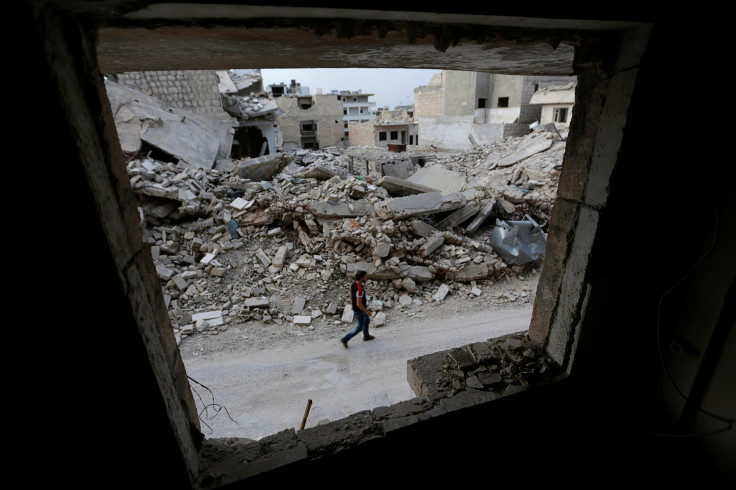Syria Talks: World Powers Seek Progress In Vienna, But Assad’s Fate Remains In Limbo

Prospects of a breakthrough during the latest round of multilateral peace talks in Vienna, aimed at resolving the protracted conflict in Syria, seem increasingly dim. Tuesday’s meeting of the International Syria Support Group (ISSG), a 17-nation group participating in the peace process, will be co-chaired by the United States and Russia — two nations at odds over the role of Syrian President Bashar Assad in the talks.
A nationwide ceasefire in Syria, brokered by the U.S. and Russia in February, is currently at the verge of collapsing. The U.S. and rebel groups backed by it accuse Assad — who has the unflinching support of Russia — of repeatedly breaching the truce by targeting civilians in rebel-held areas and call for his immediate removal.
Russia and Iran, however, have balked at the prospect, stating that Assad’s removal would create a power vacuum that may plunge the war-torn country into further chaos.
“We haven't got anywhere near having that discussion with the Syrians themselves because the U.S. and Russia have been trying to bridge the gap, and they haven't been able to do so,” a United Nations diplomat, speaking on the condition of anonymity, told Reuters. “So that's why we have got to come back and multilateralize this.”
Many regions in Syria, meanwhile, have continued to witness an upsurge in violence despite a tenuous ceasefire. In the rebel-held northern Syrian city of Aleppo, which has, in recent days, witnessed some of the worst violence since the conflict began in 2011, nearly 300 people have been killed in attacks carried out by forces loyal to Assad and Jaish al-Fatah — an alliance of militant groups that includes al Qaeda affiliate Jabhat al-Nusra and Ahrar al-Sham.

“The war has been going on for five years and there has been an awful lot of bloodshed and suffering experienced by the Syrian people. ... Obviously not all the trend lines in Syria are going in the right direction,” U.S. State Department spokesman John Kirby said during a press briefing Friday. “We’ve talked about the cessation continuing to be under threat and not to — and not to be uniformly observed. ... So there’s plenty of work to be done in the ISSG on all three of those fronts, and the Secretary is very mindful of the challenges still ahead. That’s why this next iteration of the ISSG is so important.”
The violence, including attacks on hospitals, has also stymied international aid agencies’ efforts to deliver food and medicine to Syrian civilians.
“Innocent Syrians are now paying the price for inaction,” Elise Baker, a researcher at Physicians for Human Rights, said in statement released last month. “The cost of political impasse is death and destruction in Syria. If Syria’s leaders and the international community cannot reach a peace accord, there’s no doubt attacks on health care will continue, and the consequences will be deadly for everyday Syrians.”
© Copyright IBTimes 2024. All rights reserved.






















